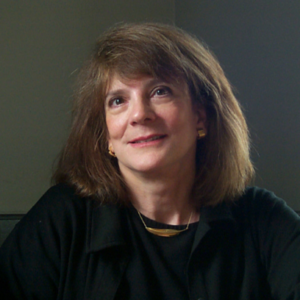Elizabeth Loftus is Distinguished Professor at the University of California, Irvine. She holds positions in the Departments of Psychology & Social Behavior, and Criminology, Law & Society. She also has appointments in the Department of Cognitive Sciences and is a Fellow of the Center for the Neurobiology of Learning and Memory. Formerly, she was Professor of Psychology and Adjunct Professor of Law at the University of Washington, Seattle, where she taught for 29 years. She received her PhD in Psychology from Stanford University. Since then, she has published 20 books and over 400 scientific articles. Her 4th book, Eyewitness Testimony, won a National Media Award (Distinguished Contribution) from the American Psychological Foundation. One of her most widely read books, The Myth of Repressed Memory (co-authored with Katherine Ketcham), was published by St. Martin’s Press and has been translated into Dutch, Taiwanese, French, German, Japanese and other foreign languages.
Dr. Loftus’s research has focused on human memory, eyewitness testimony and also on courtroom procedure. Her work has been funded by the National Institute of Mental Health and the National Science Foundation. She has received six honorary doctorates for her research. She served as the 1984 President of the Western Psychological Association, and again as President during 2004-05. She was the 1985 President of the American Psychology-Law Society (Div 41 of APA) and the 1988 President of Division 3 (Experimental) of the APA. She was president of the American Psychological Society during 1998–1999.
In addition to Honorary degrees, Dr. Loftus has received numerous awards and honors for her research. In 1995 she received an award from the American Academy of Forensic Psychology – their Distinguished Contributions to Forensic Psychology Award. In l996 she received the American Association of Applied and Preventive Psychology (AAAPP) Award for Distinguished Contribution to Basic and Applied Scientific Psychology. In 1997 she received the American Psychological Society, James McKeen Cattell Fellow (“for a career of significant intellectual contributions to the science of psychology in the area of applied psychological research”). She received the William James Fellow Award from the American Psychological Society, 2001 (for “ingeniously and rigorously designed research studies…that yielded clear objective evidence on difficult and controversial questions”) and in 2010 received the Howard Crosby Warren Medal from the Society of Experimental Psychologists (for “significant contributions to the understanding of the phenomenology of human memory, especially its fragility and vulnerability to distortion”).
In 2002, the National Academy of Sciences bestowed upon her the inaugural Henry & Bryna David Lectureship (an award for “application of the best social and behavioral sciences research to public policy issue”) The article that she wrote in conjunction with this award was subsequently selected for inclusion in The Best American Science and Nature Writing. In 2003, the same year that she received the APA Distinguished Scientific Award for Applications of Psychology, she was also elected to membership of the American Academy of Arts & Sciences. In 2004 she was elected to the National Academy of Sciences. In 2005, she won the Grawemeyer Prize in Psychology (to honor ideas of “great significance and impact”), and with it came a gift of $200,000. Also in 2005 she was elected to the Royal Society of Edinburgh, Scotland’s national academy of sciences and letters established in 1783. She has been elected to the International Academy of Humanism as Humanist Laureate and was awarded for Distinguished Contributions to Psychology and Law by the American Psychology-Law Society.

